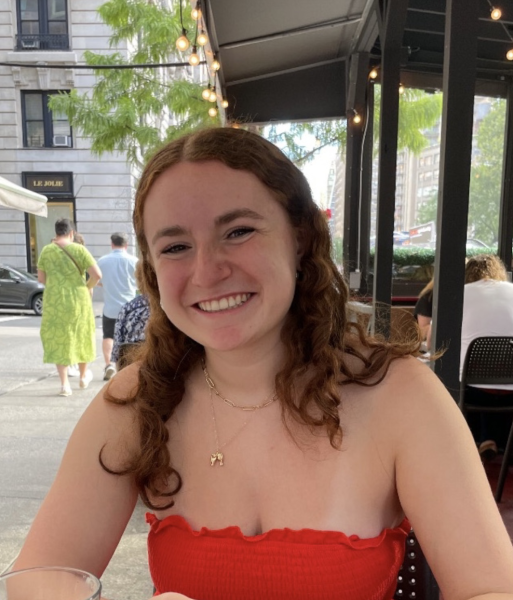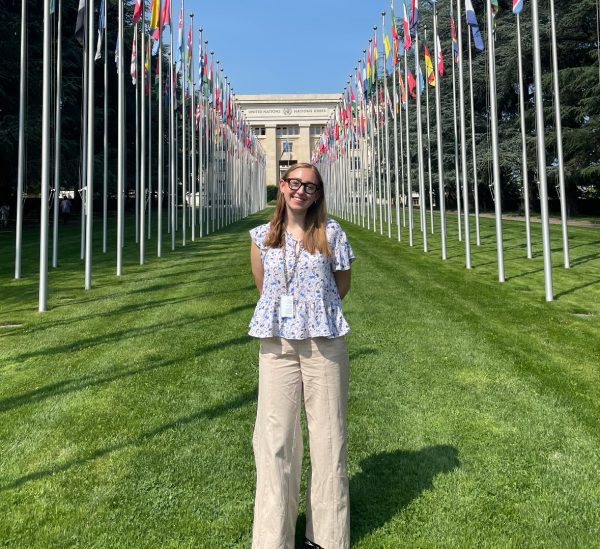Professor Hibi Pendleton: From Ballet Dancer to Philosophy Instructor
Through Professor Hibi Pendleton’s many career stages, from ballet dancer to lawyer, she was eventually drawn back to her true passion: teaching philosophy. Originally from Mississippi, Pendleton delayed college to dance with several classical ballet and modern dance companies. She then went to Barnard College as an undergraduate, where her love for philosophy was born.
“I had a course taught by a great philosophy professor, where we read fantastic works of philosophy, starting with Plato and finishing with Marx … it really opened my eyes,” said Pendleton. “I just felt like I was learning so much. It was really the rush of a completely new field, a completely new discipline. So [it was] super invigorating, super stimulating.”
But after discovering this passion, becoming a professor of philosophy was not her immedate focus. Pendleton explored several different avenues before returning back to her roots of philosophy. After graduating from Barnard, she felt “trepidation” about where her philosophy major would apply to a career path, and decided to go to Germany to study at Free University. She later returned to the United States and started a Ph.D program in philosophy at the University of Pittsburgh. However, she did not finish the program, and pivoted to pursue a law degree at New York University School of Law. She practiced law and clerked for a federal district court judge, but ultimately realized that she missed teaching philosophy. Pendleton then returned to the University of Pittsburgh and completed her Ph.D, then taught at University of Illinois Champaign-Urbana in both the philosophy department and the law school.
Pendleton landed her job teaching at Colgate in 2000 shortly after her husband Edward Witherspoon, an associate professor of philosophy at Colgate, also began teaching in the philosophy department. She expressed that coming to Colgate led her to some of the most rewarding points in her career thus far, as it also led her to become involved in social reform work. She taught philosophy courses at the Mohawk Correctional Facility, a medium-security men’s prison in Rome, New York, up until the start of the pandemic.
Pendleton was very reflective and reminiscent in speaking about her academic journey, particularly on how she came to be a philosophy professor.
“What happened for me, [was] I really tried a lot of different careers in my life. And they all kept taking me back to philosophy. Whenever you start to think, what am I doing? Why am I doing this? Does it matter? Why does it matter? What do I owe others? What do I owe myself? I think it comes back to philosophy. … Whenever I start to think deeply about the things that matter to me, I find myself thinking philosophically. So it was really something I couldn’t get away from.”
It is these important, broad questions that led Pendleton to view philosophy as an important line of study for any student who is willing to think critically.
“It’s so open to each person’s particular perspective on the material. I mean, what we’re doing in a philosophy class, I think, is approaching these texts with a kind of humility and an attitude of discovery. And with a classroom attitude that we’re all in this together,” said Pendleton. “We’re going to try to think through this complex and rich material together, learning from one another, exchanging ideas and hopefully really energizing and enriching ourselves.”
Pendleton sees teaching philosophy as “more than a job,” considering it more broadly applicable to several aspects of life.
“Having tried a lot of different careers from waitress, ballet dancer, to systems analyst, to lawyer, [to] teacher. Having, you know, tried my hand at a lot of different things, I think it helps me approach philosophy as not something purely academic. Like it has really shaped how I think about my approach to my life. So for me, and I think for many, many others, this is the way in which it’s more than just an academic exercise.”
Pendleton expressed excitement in continuing to share her insights on the study of philosophy at Colgate and to continue to use it as a guiding force in her own life. She is currently working on an upcoming project after she was approached and asked to write a book on an idea from her dissertation about philosopher Iris Murdoch and the nature of moral principles.














